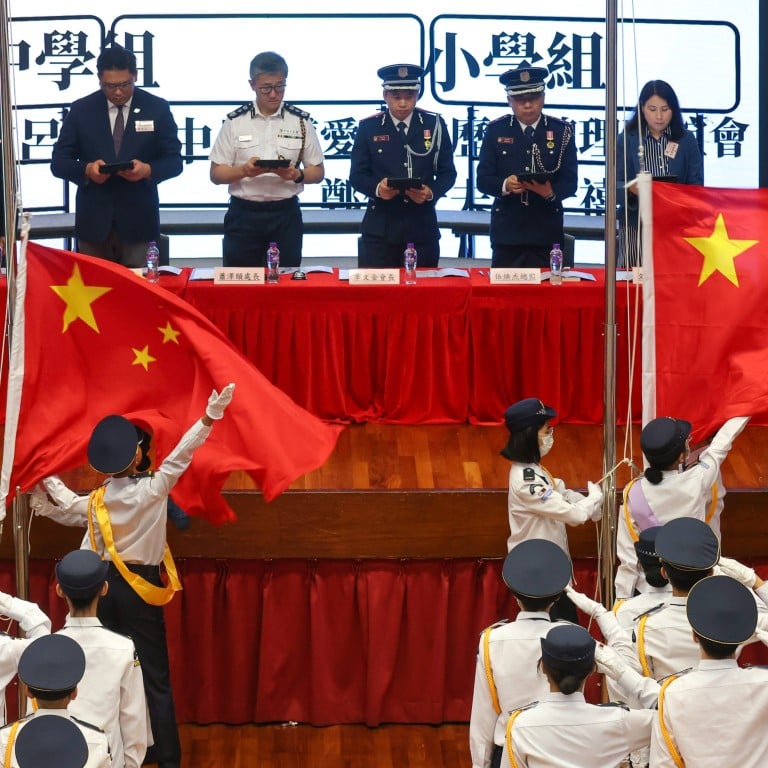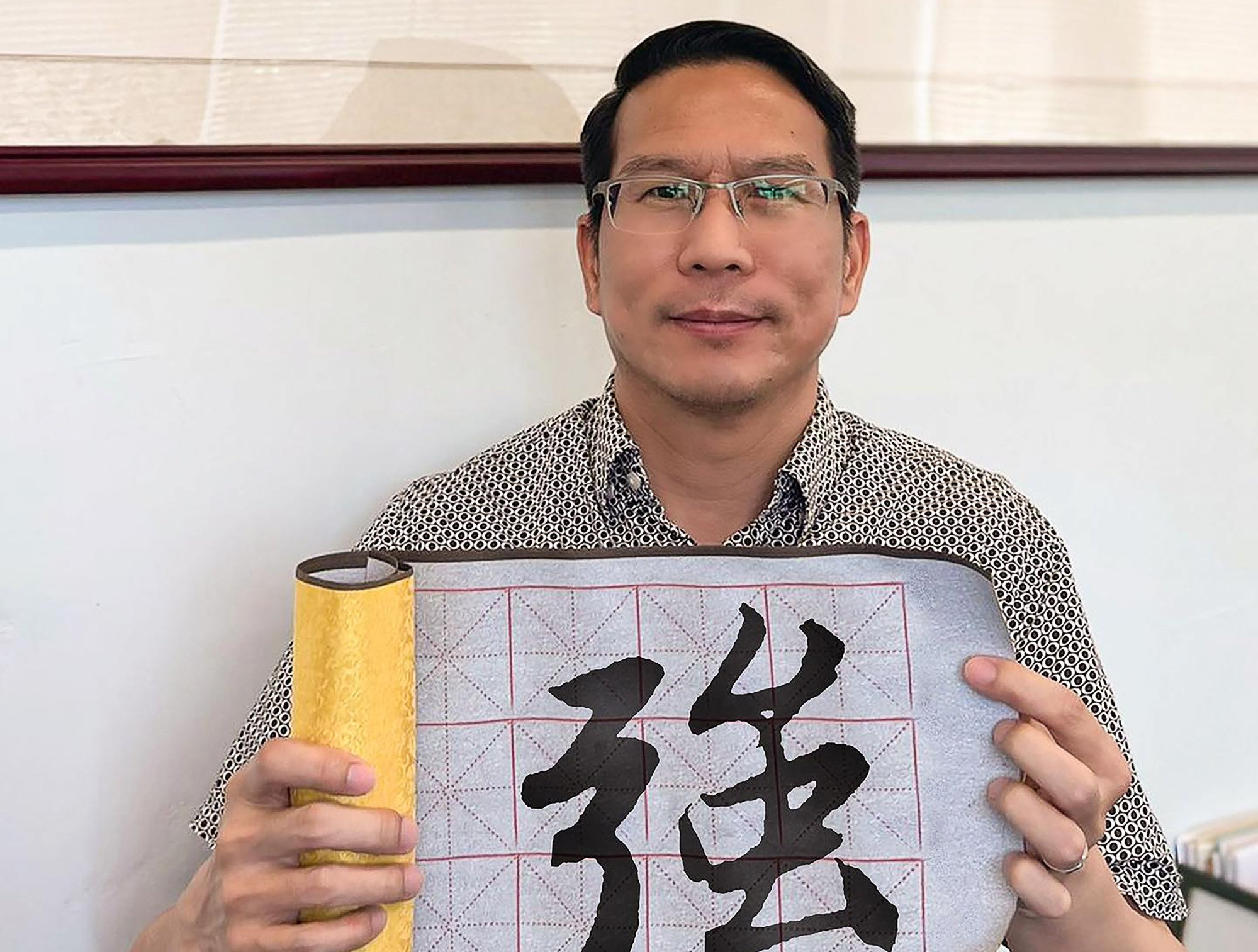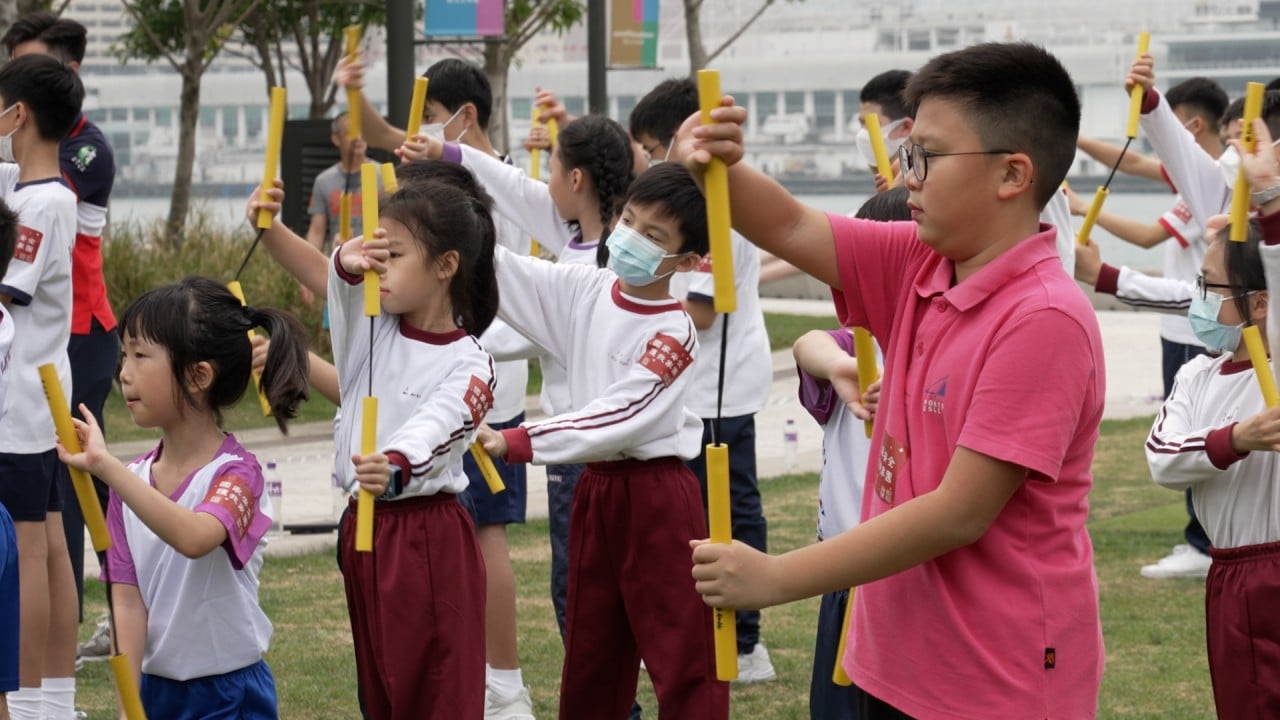
Hong Kong schools get national security Q&A kit for pupils to learn over summer break, but principals say homework too tricky for youngsters
- Principals say issues covered in 62 questions and answers are hard for primary school pupils to grasp
- Schools have flexibility to use handout to plan lessons and guide students, Education Bureau says
It went out with a circular from the Education Bureau to all local primary and secondary schools this week, suggesting activities they could plan and available resources for marking the third anniversary of the introduction of the national security law in Hong Kong.
The bureau said the 62 multiple choice questions, answers and references aimed to strengthen students’ understanding of their country and national security.
It encouraged students to go through them on their own during the two-month holidays, and added that teachers should follow up on their progress.
National security: fund requires exit clauses in Hong Kong school contracts
Some principals told the Post they needed more clarity, including guidelines on how to use the materials and what teachers were supposed to do.
“The questions are quite difficult and it is impossible for kids in the lower grades to understand, let alone answer them,” Yaumati Catholic Primary School (Hoi Wang Road) Principal Polly Chan Shuk-yee said.
“The circular also says teachers should follow up on the students’ progress, and we want to know what, exactly, that means.”
One question asks students to name the Chinese leader who said during a meeting with a United States congressional delegation in 1978 that “China could not bear the imperative to not use force to solve the Taiwan problem, otherwise it would practically cut off a method to resolve the Taiwan problem, including a peaceful resolution”.
Another question asks students to identify the duties of the Hong Kong government’s Committee for Safeguarding National Security, with more than one correct answer from a choice of four.
Hong Kong lawmaker queries using government cash for national security education
Principal Chan said students could work on just one question a day during the holidays as suggested by the Education Bureau, but the contents were complicated and she questioned if younger children could grasp them.
“The burden will probably end up landing on the parents,” she said.
Chu Wai-lam, vice-chairman of the New Territories School Heads Association and headmaster of Fung Kai No 1 Primary School in Sheung Shui, said even older primary students were likely to only “partially understand” the topics.
But, like some other educators, he viewed the set of questions as a suggestion for lesson planning rather than a compulsory activity.
He said teachers could group the questions by topic and create lesson plans, before asking students to complete the quiz afterwards.

Agreeing that schools had flexibility, Langton Cheung Yung-pong, a primary school principal and honorary chairman of the Hong Kong Aided Primary School Heads Association, said: “I think if this was mandatory and we were meant to strictly adhere to these questions, we would know without a doubt.”
He added that in the past, the Education Bureau had used “very tough” language when announcing compulsory activities for schools.
This time, it appeared different. “Teachers can adapt the questions and topics to their students’ level using their professional judgment,” he said.
Responding to the Post, a bureau spokeswoman said the national security law package was meant to encourage continuous learning in national education, and schools and teachers had leeway in deciding how to use the materials.
“The guidelines do not have fixed learning methods,” she said. “Schools and teachers may decide how it should be used, while students can also learn by themselves by using the explanatory information in the materials.”
Many Hong Kong schools get failing marks on national security teaching
Meanwhile, education sector lawmaker Chu Kwok-keung said there was “room for improvement” at the government’s end as the materials were “not of very high quality”.
“For one, there are several glaring typos,” he said. “One question asks about the ‘1988 financial crisis’ when it should be 1998.”
Chu said: “It will be better for learning if the government produced videos or stories for students to watch each week. This seems like a very rigid approach.”


